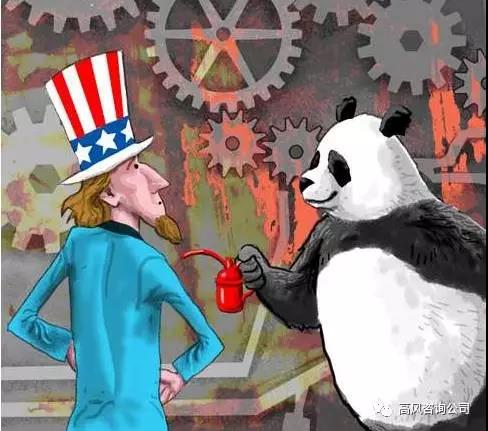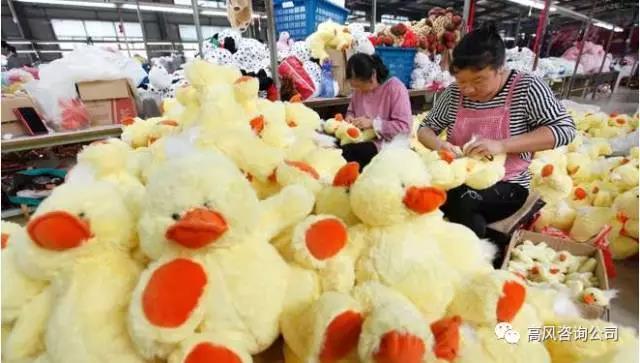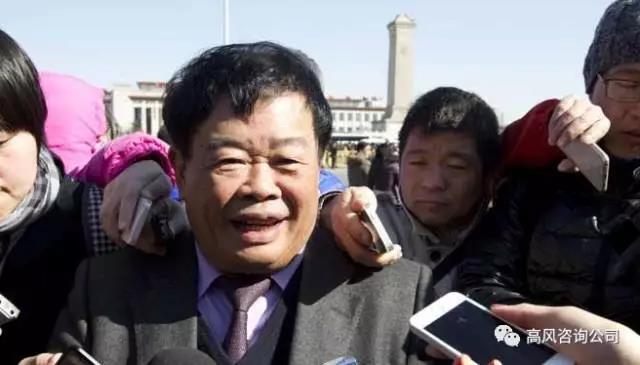
UPDATED : Thursday, 05 January, 2017, 7:34pm
How Chinese Entrepreneurs Can Help Trump ‘Make America Great Again’
Dr. Edward Tse says Chinese investment and job creation are just what the US economy needs to sharpen its edge, not isolationism and trade wars
Donald Trump’s recent appointment of Peter Navarro to head his newly formed White House National Trade Council has sparked controversy.
Navarro is known for his hawkish views on China and many believe that, by appointing him, the US president-elect is signalling that he will play hardball with China on trade when he takes office.
Navarro has written a number of books and filmed a documentary in which he criticised China for unfair trade practices, especially with the US. He has called China “a cheat”, “brutal” and “amoral”.
Perhaps his most quoted book is Death by China (published in 2011), in which he accused China of purposely hollowing out America’s manufacturing sector, manipulating its currency to make exports cheaper, and creating an unequal playing field in which China can exploit US markets while ensuring American companies are squeezed out from the Chinese market.
‘Cheating, rapacious, venal, disease incubator’: here’s what Trump’s new trade tsar thinks of China
Trump has openly said that he read the book and found Navarro’s arguments to be clear. By implication, this would seem to be at least part of the reason why Navarro was picked for the job.
External views of China, as the country transforms, range from being very positive to very negative. However, most of these views, especially the negative ones, fail to take into account the full China context and its continued evolution.
A recent Wall Street Journal article calls Navarro’s arguments “hyperbolic and out-of-date ”.
China has evolved significantly since Deng Xiaoping (邓小平) pushed for greater economic opening up, during his landmark 1992 “southern visit”. During the 1990s and part of the 2000s, the country certainly benefited from cheap labour, with its limited worker protection and low overall environmental standards. However, China’s labour costs have been rising steadily due to more stringent regulatory standards and salary pressure, coupled with much higher benefits.
While China still has significant environmental problems, it is now a leading proponent of global cooperation against climate change and is investing billions of dollars to combat its own pollution issues.
Currency manipulation is another common mantra of Chinese alarmists. Currently, China is using its foreign currency reserves to stop the renminbi from getting weaker.
Even though some industry sectors are still closed or partially closed to foreign companies (and non-state Chinese companies), more sectors are increasingly being opened for companies, regardless of their origins. And, in these open sectors, competition is often extremely intensive, driving attempts at excellence.
While not every US company operating in China has done well, it would be inaccurate to say that US companies are in general unfairly treated in the country and squeezed out. Nike, Starbucks, General Motors, Ford, Honeywell and Apple are examples of how companies across different sectors are all doing very well in China.
Many economists of various political leanings have voiced support for free trade. In 2015, more than a dozen well-known, mainly conservative economists, including Alan Greenspan, Charles L. Schultze, Ben Bernanke, and Greg Mankiw wrote to the US Congress in support of various free trade deals, declaring free trade as being a fundamental good for the US economy. Paul Krugman, the Nobel-Prize-winning liberal economist, is an open proponent of free trade. Trade is not a zero-sum game.
Instead of launching a trade war, collaboration is the way to go. Fuyao Glass, a privately owned Chinese automotive glass company, recently announced it would invest US$1 billion in its US operations to open manufacturing plants in both Ohio and Michigan . These plants would create over 3,000 jobs for American workers.

Study: US-China investment ties are bigger and deeper than anyone thought
Fuyao chairman Cao Dewang said the economics of manufacturing in the US is now competitive relative to that in China, at least for his company. The US auto market is significant and having an established presence next to its customers is crucial for Fuyao. A report by US research company Rhodium Group, published in December and titled “Chinese Investment in the United States”, said Americans employed by Chinese firms have grown from less than 10,000 in 2009 to more than 100,000 today.
Rhodium also found that the majority of American firms acquired by Chinese companies have undergone expansion after the initial acquisition, and that Chinese companies’ investments are becoming capital-intensive production and research and development operations, that will bring in more jobs for American workers.
Fivefold surge in Americans on Chinese firms’ payrolls, US study shows
Earlier, Rhodium forecast that Chinese companies would invest between US$100 billion and US$200 billion, and create 200,000 to 400,000 jobs in the US by 2020.
Perhaps Trump will be concerned about investments by China (or other foreign countries) in sectors that the US government feels would endanger its national security interests. However, there is still lots of room for investments outside this area. The Fuyao investment is one such case. Manufacturing of other types of auto parts or supplies, construction machinery, building materials, consumer products and retail come to mind, too.

Chinese firms pour money into US R&D in drive for innovation
Attracting Chinese companies to invest in the US and build plants, especially in the Rust Belt, is probably the fastest way to create jobs where the US most urgently needs them.
Many of the Chinese companies with such plans or interests are not “leaving China”. Take Fuyao: China remains and will be its largest market, but investing overseas also makes sense, given the emerging international opportunities.
In addition to hard-core manufacturing, Chinese investors are also interested in the services, media and entertainment sectors , as well as internet-centric technology. Such investments would also create a substantial number of local jobs.
The competitiveness of a country is based on its relative, sustainable competitive advantages. And they are driven by innovation, openness and collaborative leverages. Given Trump’s stated desire to “make America great again”, he must focus on how to increase the competitive advantages of the US, and that will not come from isolationism and launching trade wars.
Edward Tse is founder and CEO of Gao Feng Advisory Company, a global strategy and management consulting firm with roots in Greater China. He is author of China’s Disruptors

